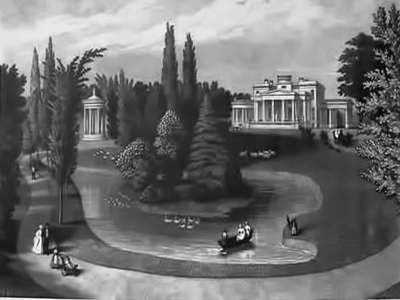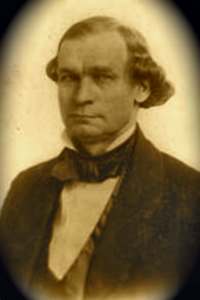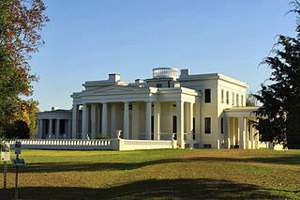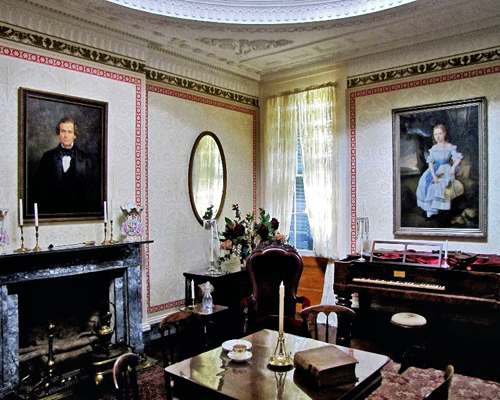On the eve of the Civil War in 1842, Gaineswood, a southern plantation, was constructed at Demopolis, in southwest Alabama.
General Nathan Byron Whitfield had highly talented artisan slaves build his mansion, which was designed in the Greek revival style. It is now regarded as the best neoclassical house in Alabama. It displays the Doric, Ionic, and Corinthian architectural orders of antiquity.

Until the late 1960s, it was a private residence. Fine Chippendale furniture is still present throughout the property, which has been meticulously conserved.
It is one of the 150 must-see homes in the United States and is listed on the National Register of Historic Places. It is now operated as a house museum.
Tragically, General Whitfield’s wife passed away not long after the mansion was finished. He was left to raise his young children alone. He engaged Miss Carter, a young woman of gentle birth, to serve as his housekeeper and a playmate for the kids.

The closest relatives of Miss Carter lived in Virginia, and her father was traveling throughout Europe as the consul to Greece. The General noticed Ms. Carter was lonely despite the fact that her duties kept her busy. He gave her the go-ahead to invite her sister Evelyn to spend the winter at Gaineswood.
Evelyn brought joy to the household. She cherished playing the piano. She was frequently joined by the General, who was also a musician. He loved Scottish music and would perform piper duets with Evelyn.
Even though it was one of the harshest winters ever recorded, Evelyn’s presence made everyone happy.
Sadly, Evelyn developed a disease. The best doctors were brought in by the general, but Evelyn passed away after a few weeks. Evelyn passed away from either pneumonia or a severe case of malaria, depending on which account one reads.
A more dramatic version claims that she passed away due to a broken heart.
A charming French count who had fled the Napoleonic Wars was in town and was in Demopolis. He developed feelings for Evelyn. The couple fought despite him buying her an engagement ring. From Evelyn’s hand, he took the ring and hurled it into the underbrush.
Then he went and didn’t come back. Infirmed by grief, Evelyn passed away.Her dying wish was to be buried in Virginia after being sent back. Due to the winter weather and the length of time it would take Evelyn’s father to travel back from Greece for the funeral, the roads were coated in ice and snow.
So it was decided to pack Evelyn’s body in an airtight pine box that was rosin-sealed. Then it was put in the cellar, down by the stairs. It would be taken to Virginia in the spring.
Gaineswood inhabitants eventually came to feel that Evelyn’s spirit could not rest in peace as a result of this choice. They thought she didn’t enjoy being imprisoned in a frigid, dark cellar.
People living in the home soon heard footsteps ascending the cellar stairs after being placed there. They would hear someone enter the drawing room, where the big piano was located, quietly.

The mansion would occasionally be filled with faint musical noises. These songs tended to be Scottish ballads.
These sounds would occasionally halt when bolder folks descended into the cellar. But the music would start up after they went back upstairs.
The music and footsteps were so loud that they would wake up the entire home. So everyone was pleased with the arrival of spring. They were confident that the interruptions to their sleep would stop. They erred, though.
Gaineswood was still being haunted by Evelyn’s ghost, despite the irregular activity. She was reportedly confined in the cellar for several months while still objecting.
Even more recently, when Gaineswood was still a private property, visitors would claim that the lovely sounds of long-forgotten songs would follow the sounds of delicate footsteps on the cellar stairs, interrupting their dreams.

